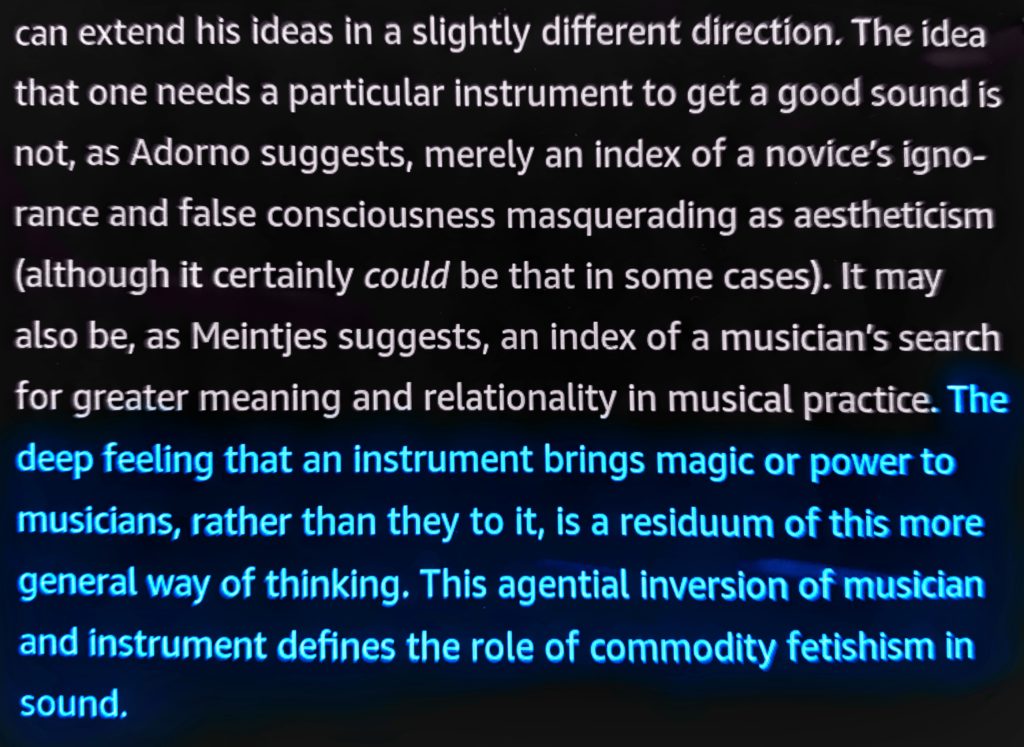My spouse got me three books from my wishlist for my birthday. The authors wrote them, the publisher was responsible for marketing blurbs, and I chose them and am the reader. So any disappointments here were not my spouse’s fault, but I’ll give her some credit for where I find delight or enlightenment in them. 🙂
Currently I am reading Kim Stanley Robinson’s The Ministry For the Future. It is a fictional story of an international organization tasked with saving the future from the present, mainly in terms of climate change and equitable distribution of resources. There’s a fair bit of nonfiction sprinkled throughout. It grapples with all kinds of geoengineering, carbon capture, and energy technologies, the question of how to value human and nonhuman life (present and future), and most importantly, where and how to apply the leverage necessary to do what must be done. It is excellent so far.
Sonic Possible Worlds was, unfortunately, a hard pass. When I was quickly going through lists of books about music and sound, it seemed interesting. From the introduction and the start of the first chapter though, maybe it is brilliant and esoteric in some way but to me it is just impenetrable word salad. I gave up.
Sound Objects is a set of essays that mostly center around Pierre Schaeffer’s concept of objets sonores. Schaeffer was famously the inventor of musique concrète — a sort of musical collage assembled from snippets of audio recordings — and performed studies categorizing sounds according to their actual characteristics rather than what produced them. (I may be oversimplifying that.) Most of the essays are drily academic and philosophical arguments about what the words mean and what words would have been better, and honestly not exactly inspiring.
However, “Spectral Objects: On the Fetish Character of Music Technologies” by Jonathan Sterne grabbed my attention — it is about the relationship of musicians to instruments (and other equipment) in terms of the Marxist concept of “commodity fetishism.” That is: a sort of worship of goods as having intrinsic value, without recognizing the labor and social relations that produce that value.

The highlighted last couple of sentences in particular is what really grabbed me.
Where is the magic located — in the wizard, or in the wand? Or did it come from whoever made the wand? Or is it in the mind of the one witnessing the magic? That can be a key question in fantasy fiction or in roleplaying games, but I think this article has a good point where it comes to musicianship.
I can’t bring myself to say that in electronic music, the instruments are unimportant. I’ve often found switching gear (heh) or finding the right kind of setup to match one’s temperament helps bring inspiration, and certainly each instrument has its own character which can contribute to the music. But I do think there is something skewed about many electronic musicians’ relationship to gear, and perhaps that is more true in both modular and software-based electronic music. Like we do a lot of chasing more and different things, when we already have more that we can handle. Perhaps the related concepts of magic and agency are the right way to contemplate this.
